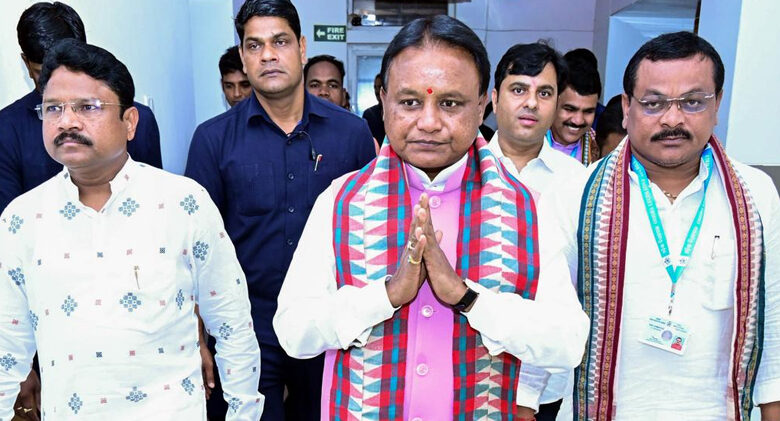
On January 14, 2025, Odisha Chief Minister Mohan Charan Majhi publicly criticized the previous Naveen Patnaik-led government for its failure to implement the Ayushman Bharat scheme, which has been a cornerstone of the Indian government’s efforts to provide affordable healthcare to millions. Majhi’s remarks came shortly after Odisha signed a Memorandum of Understanding (MoU) with the National Health Authority (NHA) to officially join the Ayushman Bharat Pradhan Mantri Jan Arogya Yojana (AB PM-JAY), making it the 34th state to do so.
The Ayushman Bharat Scheme: A Brief Overview
Launched in September 2018, the Ayushman Bharat scheme aims to provide health insurance coverage of up to ₹5 lakh per family per year for secondary and tertiary care hospitalization. The scheme is particularly focused on economically disadvantaged sections of society, with an estimated 50 crore beneficiaries across India. It covers a wide range of medical services, including pre-hospitalization diagnostics and post-hospitalization expenses.The scheme is designed to alleviate the financial burden of healthcare costs, which often push families into poverty. Despite its noble intentions, Odisha had not implemented this crucial program until now, leading to significant criticism from various quarters.
Majhi’s Criticism of the Previous Government
During a press conference at Biju Patnaik International Airport upon his return from New Delhi, CM Majhi stated that the previous government’s inaction deprived the people of Odisha of essential health benefits. “The previous BJD government did not implement Ayushman Bharat due to its personal interests,” he asserted. “This has resulted in a travesty where my sisters and brothers in Odisha were denied access to quality healthcare.”Majhi emphasized that while the BJP had been advocating for the implementation of Ayushman Bharat during its time in opposition, the BJD government ignored these demands for political reasons. He claimed that the BJD’s reluctance stemmed from a “selfish agenda” that prioritized political gain over public welfare.
Transitioning to Ayushman Bharat
With the signing of the MoU, Odisha’s government plans to integrate Ayushman Bharat with its existing Gopabandhu Jan Arogya Yojana (GJAY). This convergence will enhance healthcare access for approximately 1.03 crore families in Odisha, allowing them to avail cashless treatment at over 30,000 hospitals across India—an increase from just about 900 hospitals under the previous state scheme.Majhi mentioned that women will receive an annual health coverage of ₹10 lakh while men will be covered for ₹5 lakh. He also announced plans to establish ‘Ayushman Arogya Mandirs’—health centers in every gram panchayat—staffed by healthcare professionals including Auxiliary Nurse Midwives (ANMs) and yoga teachers.
Political Repercussions and Responses
The criticism directed at the former BJD government has sparked a political backlash. BJD spokesperson Lenin Mohanty countered Majhi’s claims by stating that their own Biju Swasthya Kalyan Yojana (BSKY) was far superior to Ayushman Bharat. He argued that BSKY provided better funding and flexibility for healthcare services in Odisha.Moreover, Mohanty pointed out that while BSKY had an annual budget exceeding ₹3,500 crore, the provisions under Ayushman Bharat were initially set at around ₹350 crore. This disparity raises concerns about whether the new scheme can adequately meet the healthcare needs of Odisha’s population.
The Broader Implications for Healthcare in Odisha
The implementation of Ayushman Bharat is expected to significantly improve healthcare accessibility across Odisha. With many residents working outside the state and lacking adequate health insurance coverage, this scheme aims to fill critical gaps in health services.Prime Minister Narendra Modi expressed his support for this initiative on social media, stating that it would ensure high-quality healthcare at affordable rates for all citizens. The central government has emphasized its commitment to universal health coverage as part of its broader development agenda.However, while this move is seen as a positive step towards enhancing healthcare infrastructure in Odisha, it also raises questions about how effectively it will be integrated with existing state schemes like GJAY and whether it can sustain itself financially in the long term.
Future Prospects
As Odisha embarks on this new chapter in its healthcare journey, stakeholders will be keenly observing how well the state government manages this transition. The success of Ayushman Bharat will depend not only on adequate funding but also on effective implementation strategies that ensure transparency and accountability.Majhi’s administration has pledged to make budgetary provisions for health centers and other related initiatives as part of this ambitious plan. The establishment of ‘Ayushman Arogya Mandirs’ could serve as a model for grassroots healthcare delivery, potentially improving health outcomes for rural populations.
